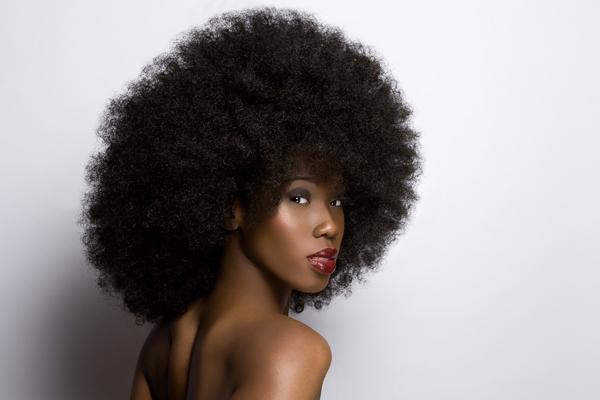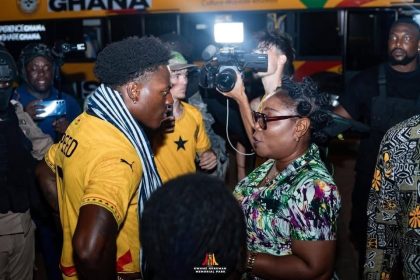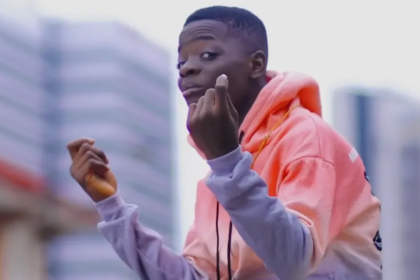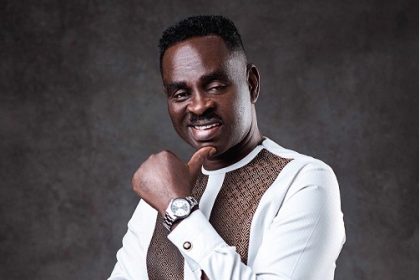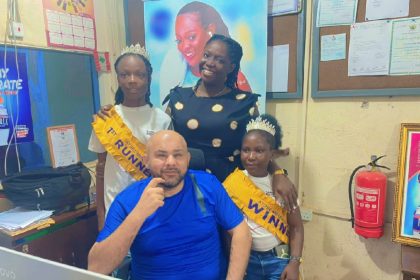On the streets of Dakar, Abidjan or Lagos, you’ll be hard-pressed to see the Afros now commonplace in Nairobi, Johannesburg and New York. You might conclude that the natural hair movement has failed to take root in West Africa. But you would be wrong: More and more people are carrying their natural hair these days.
They might be wearing it under braids, headscarves, wigs and, yes, even weaves. They might be closeted naturalistas, but they’re naturalistas nonetheless.
That wasn’t the landscape Linda Dempah encountered when she visited her Ivory Coast hometown, Abidjan, over the past decade. Dempah, a New York-based strategy consultant at the time, had seen women who’d tried natural hair go back to perms, disappointed that their hair didn’t “look like that of people they have seen in the West.”
More than a century of colonial influence and the dominance of perms had resulted in a loss of knowledge about how to take care of African hair.
Equally, the high cost and limited availability of products for natural hair were a deterrent. So in 2015, she began the groundwork to launch Adeba Nature, a hair product line in Abidjan that uses local ingredients and technical expertise from her pharmacist mother and her sister, who has a PhD in pharmaceutical chemistry.
Adeba Nature is among a cluster of companies, hair salons and communities emerging across West Africa that’s sparking a shift in the region’s approach to natural hair. They’re tapping into a growing natural hair market across Africa. South Africa alone has a natural hair market valued at more than $300 million.
Since 2016, Kinky Apothecary, Nigeria’s first natural hair products firm, has held natural hair and beauty shows — effectively festivals where experts from around the world speak and share their expertise and experiences with natural hair.
Natural Nigerian, which started as a blog, now holds quarterly meetups in Lagos for women wearing natural hair there, and has held similar meetups in the cities of Ibadan, Calabar, Enugu and Abuja.
In Ivory Coast, the online group Nappys de Babi has built a community of 20,000 natural hair wearers since its launch in 2011. And in places like Lagos, Abidjan, Dakar and other major regional cities, salons finally treat their customers not as errant, rebellious people hell-bent on making them work hard, long hours to manage difficult hair, but actually as people, who simply have chosen to keep the hair on their head in its natural form.
“The natural hair movement has grown in Abidjan mostly because of salons that actually know how to manage it, and also because of increased availability of local products that are working well for people’s hair,” says Dempah.
These firms producing natural hair products are using ingredients that Africans’ ancestors used for hair care, and they’re are combining them with scientific knowledge to formulate stable, prepackaged products that can be used by the mass market.
If the number of people with natural hair is growing, why is there minimal evidence of it when you roam West African streets? The answer varies from city to city. In Lagos, Ifeamaka Umeike, a chemist by background and the founder of Natural Nigerian, says, “Nigerians are aggressively fashionable.”
Even when people have learned that their hair is stronger and healthier without chemicals, they are still beholden to traditional fashion standards that value long, voluminous hair as the ideal. She adds, “There is no weave maker in Lagos going broke.”
Nigeria has also “always had lots of hairstyles,” says Efua Oyofo, a Nigerian lifestyle writer and social commentator. And the heat and humidity made it more practical for women to have their hair woven, plaited or threaded as opposed to wearing it in a typical Afro.

The lack of diversity in visible Afros also makes some people shy away from having their hair out — and that, in turn, means that you don’t see natural hair even when it’s there below a wig or scarf, suggests Umeike. She recalls a woman telling her: “If I have the hard village hair, I’m not going to keep it.”
This hierarchy of natural hair isn’t unique to West Africa but affects Black people everywhere. American R&B star India Arie sang in I Am Not My Hair: “Good hair means curls and waves/ Bad hair means you look like a slave… It’s time for us to redefine who we be.”
Yet it’s taken longer for that spirit to take hold in West Africa, compared to other parts of the continent. West Africa’s reputation as the most fashion-conscious part of the continent makes it harder to break from global beauty standards.
When Daba Plus, a Dakar salon, opened in 1982, “everyone came for perms,” says Daba, the owner. “In the last [few] years, I have seen most customers go natural.” Part of the challenge, even for those who wanted to go natural, was the cost. Oyofo recalls how once at a salon, she had negotiated the price for getting her hair done. But when she took off her headscarf, the hairdresser exclaimed, “We have to increase the price. This hair is too much and too difficult to do.”
Even today, it isn’t easy to go natural. At many workplaces, natural hair is considered “unprofessional,” says Maddya Thiam, a young professional in Dakar. Senegal’s semi-flexible interpretations of Islamic laws, which call for women who follow them to cover up their hair, also make the natural hair movement less visible.
There’s a generational divide too. Daba recalls how she was upset at first when her daughter went natural and asked her “why she would want to keep her hair this untidy.” More recently, she reflected on her emotions. “When did keeping our hair in the form it comes out of our heads in becoming such a taboo?”
In short, the rise of the natural hair movement in West Africa remains a knotty affair with some kinks, twists and turns — it’s tough to untangle, but growing relentlessly nonetheless.


